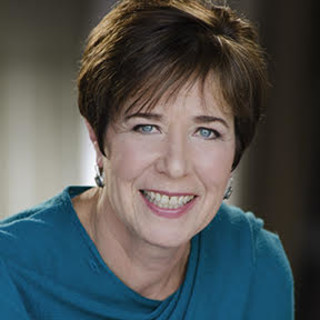
Physicians Burnout is at epidemic proportions, with no end in sight. According to the 2017 Mayo Foundation for Medical Education and Research; Mayo Clinical Proceedings 2017, over half of U.S. physicians are experiencing professional burnout, and this is increasing. Drivers include excessive clerical burden, inefficiencies and frustrations with electronic health records (EHR), loss of control and flexibility, problems with work-life integration, a growing sense of devaluation, and an inability to provide care to our standards.
I recently had the opportunity to attend the first ever American Conference on Physician Health in San Francisco, co-sponsored by the AMA and Stanford University. There were 375 places, but given extraordinary demand, they accepted 425 participants, and had a waiting list of 100 more!
The conference was organized around the article Physician Well-Being: The Reciprocity of Practice Efficiency, Culture of Wellness, and Personal Resilience that came out of Mayo. Finally, there is movement away from making us alone responsible for our well-being and professional satisfaction. Practice efficiency, and a culture of wellness are primarily organizational responsibilities, whereas maintaining personal resilience is the job of each individual physician. One third of the solution to burnout, involves developing our own self-care, and well-being skills. Two thirds, are in the hands of our organizations.
Conference Takeaways
What were some of the takeaways from the conference? Physician Wellness is crucial to quality care. The article, Physician Wellness: A Missing Quality Indicator, was recently published in the Lancet. We need to name and measure burnout. If we do not, we will not know it exists, never mind figure out how to address it. Some organizations are developing ways to measure our wellness, and track interventions.
Tait Shanafelt, M.D. Chief Wellness Officer at Stanford shared these numbers:
Former U.S. Surgeon General Murthy spoke about the growing dehumanization and depersonalization in medicine. He emphasized our need to be valued, understood, wanted, and appreciated. He said, “Workplaces don’t prioritize social connections with our colleagues” and that “Doctors are in pain, and their pain matters.” He spoke of the lack of self-efficacy many of us feel, and the extreme personal cost involved in doing great work for our patients.
The 2shoes app was used for questions, so attendees could vote on questions pending for each speaker, to let the moderator know which ones they most wanted answered.
The first, and most voted on question for Dr. Murthy was: “How do we destigmatize physicians seeking help?” The second one was: “How can we be better advocates for ourselves and our patients without sounding entitled?”
We need help. Yet, out of shame, fear, guilt, and worry about our licenses, we avoid asking for it. Our isolation is killing us. Approximately 400 doctors in the U.S. take their lives yearly. Yet, according to a recent study, nearly early 40% of U.S. physicians are reluctant to seek mental health care out of fear that it might imperil their medical license.
At the conference, Abraham Verghese M.D.M, asked us to raise our hands if we knew one physician who had died by suicide. Almost every hand went up. The bulk of us kept our hands up because we knew two. He told us, he could go on to 6, and arms would still be raised. We were directed to share the story, with the person sitting next to us, of one of the docs we knew who had died by suicide. Few eyes in the room were dry after that.
The conference included great information, and updates on the research to date. But, the most powerful sessions were those where deep sharing, from a place of pain and hurt, occurred. We doctors are in trouble; 5% of U.S. physicians have considered suicide in the last 12 months. This need not be so, and should never be! Many of us at the conference found healing from being together in community, where our challenges were acknowledged, and validated, and solutions began to emerge.
I found the conference personally validating. I have always been a doctor’s doctor, and delight in seeing my colleagues thrive. In my last job, at a large health-care organization, I had been tasked with creating a physician wellness program. But my organization was not ready to action the project. I kept trying to move the needle, without effect. In the process, I found myself burning out. So, I chose to leave my job of 3 years, to begin coaching my colleagues, outside the medical model.
I believe we need to bridge the isolation we feel, and be there for one another. We need one-on-one safe places to share our struggles outside the universe where it is reportable or public in any way. We need validation, information about what helps, tools, and a champion or two! And, we need forums to share and support one another. It is tragic that we feel the need to go underground for help and are not comfortable getting support in the context of treatment or counseling.
I am cautiously optimisitc that the tide may be shifting for us and that our burnout and need for support will be addressed. The growing number of articles and conferences about physician wellness, and the financial imperative many organizations have begun to experience as a result of massive doctor shortages, are in our favor!
Bio: Eve A. Wood, M.D. is an integrative psychiatrist, author, life and executive coach and well-being champion. More information about her and her work can be found on her website www.EveAWoodMD.com or on Doximity.







